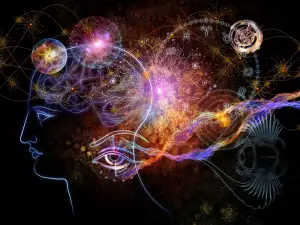From the point of view of every religion, envy is a great sin. Psychology gives such a definition as black envy. It is theperception of other people's goods as a violation of one's self. In fact, an envious person drains their body and soul in the first place.
But there is a difference between envy and black envy. White envy is a natural feeling, it encourages a person to strive and achieve their own (and not someone else's) success. Whereas black envy is like small doses of poison that one takes into their body. Until one day they reach intoxication.
Who are we envious of and how
Envy is short-term and long-term. In the first case, we may not envy the most successful, but rather those who have something that we urgently need at the moment.
Do you remember the anecdote? The oligarch sits with a fishing rod on his luxury yacht and isn't able to catch any fish. A poor little man floats in a flimsy little boat, which is full of fish. The oligarch sighs: Well, why does it always happen like this - some get everything and others nothing.
Such short-term outbursts of envy for people with a good mental state do not bring much trouble and even stimulate themselves in some way. But long-term envy is an insidious thing. Over time, an addiction to this feeling is formed.
Exposure to envy does not depend on education, social status, but only on the level of personality. At the root of dark, destructive feelings is a person's lack of a sense of humanity (ie, the perception of other people as oneself). It can also be defined as a congenital or acquired psychological defect. The negative impact of envy on the body depends on the person's psychotype.
The feeling of an energetic choleric can be accompanied by overt aggression and even a desire to cause harm. For the envious person, this is fraught with vasospasm, cardiac tachycardia (when the heart begins to beat too fast), nervous hypertension.
A morally weak, envious melancholic will do a little dirty trick, not a duel. They will do harm secretly and through other people. Health problems in melanchony can manifest themselves in the digestive system: biliary and hepatic colic, exacerbation of gastric ulcers and general discomfort in the abdomen are not excluded.
The cheerful sanguines less often than others become maliciously envious. But if that happens, keep them away - they'll do damage on purpose and on a large scale. And envy will also systematically undermine their cardiovascular system and immunity.
Phlegmatic people, due to natural indifference, practically do not feel true black envy. Rather, they are characterized by irritation towards successful people. They say: Why are you bothering me with your achievements and rousing me from my blissful slumber. But this isn't dangerous - neither for others, nor for the envious phlegmatic.
Envy's impact mechanism on health

Envy leads to feelings of inferiority which can lead to depression accompanied by passive aggression and anger towards more fortunate people. Against the background of these toxic emotions gloating develops, the envious begin to enjoy when the other person fails. This way of increasing self-esteem is false and leads to inner destruction, apathy.
The companions of envy - disappointment, depression, irritation, anger, hatred - begin to destroy a person physically. The body reacts to negative thoughts and feelings in the following way:
- Depressive conditions cause problems with the intestines and lungs, symptoms of which are constipation, low oxygen levels in the blood and difficulty breathing;
- Irritation affects the skin: hives or other forms of rash may occur, psoriasis and eczema may worsen. When irritated and stressed, the body releases the hormone cortisol, which causes the glands to produce more sebum, leading to acne and other skin problems;
- Hate affects the health of the heart and stimulates the development of tachycardia, hypertension and chest pain;
- Anger and frustration have a negative effect on the eyes, gall bladder and liver. Stagnation may occur in these organs and problems with detoxification, cholesterol may rise, digestion may deteriorate due to unbalanced bile secretion.
There is evidence that negative emotions have a detrimental effect on the body's immune system. This means that an envious person who is usually in a bad mood, angry, sad or stressed is more likely to get SARS, flu or herpes.
Envy also leads to defensive responses such as sarcasm, contempt, snobbery and narcissism through which the envious attempt to minimize the existential threat posed by the advantages of others. This leads to the loss of friends and allies, undermining even the closest relationships. The resulting bitterness and melancholy can cause bodily reactions and manifest as:
- insomnia;
- excessive fatigue;
- weight loss or gain;
- back and neck pain;
- sexual dysfunction.
Moreover, the damages of envy are expressed literally in physical pain. This showed a scientific experiment, which consists of the following: the subjects are asked to imagine the situation in which they are faced with more successful, rich and influential people and envy them. A brain scan was performed on the experimental group. When people envy, the brain regions involved in fixing physical pain are activated.
The more the subjects envied, the more vigorously they excited the pain nodes in the frontal cortex and related areas. In other words, the brain actually registers physical pain similar to that experienced by people suffering from grief.
An envious person under stress can become addicted to smoking and alcohol abuse, which ultimately affects their physical condition. Even if a person leads a healthy lifestyle, mood disorders and negative emotions cancel out the effects of a balanced diet, adequate sleep and regular exercise.














